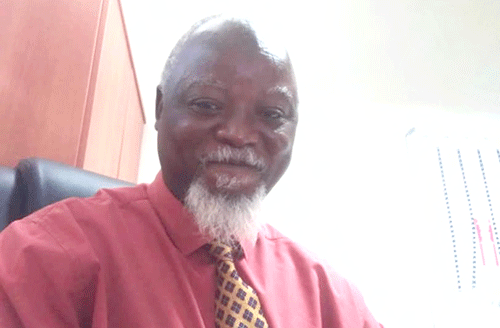Chelva Wells
Political analyst Ndumba Kamwanyah has ascribed Swapo’s sustained popularity in areas such as Kavango East and Kavango West regions to historical allegiance stemming from its liberating role and association with stability.
In an interview with Nampa, Kamwanyah said for many older voters, particularly those in rural areas, Swapo is still synonymous with Namibia’s independence and liberation history.
He said nostalgia and restricted access to alternative media, which may teach voters about other political parties, could also have played a role in those people voting for the party.
Kamwanyah further highlighted the possible impact of fear and disinformation.
“There were rumours, such as claims that IPC is funded by foreign entities, which could create suspicion and reinforce voter loyalty to Swapo,” he said.
Opposition parties such as the Independent Patriots for Change (IPC) and Popular Democratic Movement (PDM), he added, struggled to gain traction, reflecting broader difficulties in establishing themselves as credible alternatives.
Kamwanyah proposed that these parties should address, not only systemic concerns like service delivery and unemployment, but also their communication methods, in order to challenge Swapo’s strong rural narrative.
“The election results have generated arguments over what happens next,” he said, adding that Swapo should address serious concerns such as corruption, unemployment, and inadequate service delivery in order to turn around its dwindling support.
Opposition parties, on the other hand, must regain the trust of the electorate by proposing cohesive, practical alternatives, he stated.
He also said the approaching 2025 regional and local elections will be a litmus test for whether these dynamics alter or continue.
Meanwhile, both the government and opposition parties must try to meet people’s expectations and requests, he stated.
“This election underscores the complex interplay of historical loyalty, voter perceptions, and the urgent need for both sides of the political spectrum to adapt to changing demographics and urbanisation trends,” said Kamwanyah.
According to the results of the 2024 Presidential and National Assembly election announced by the Electoral Commission of Namibia on Tuesday, Swapo maintained a large lead in Kavango East, receiving 4 772 votes in Mukwe, while IPC and PDM lagged with 1 445 and 1 607 votes, respectively.
A similar pattern was found in Ndiyona, where Swapo received 2 236 votes, outnumbering IPC’s 382 votes and PDM’s 259 votes.
This pattern continued in Kavango West, where Swapo got 15 143 votes in Rundu Urban compared to 3 951 votes for the IPC and 1 447 votes for PDM.
-Nampa


